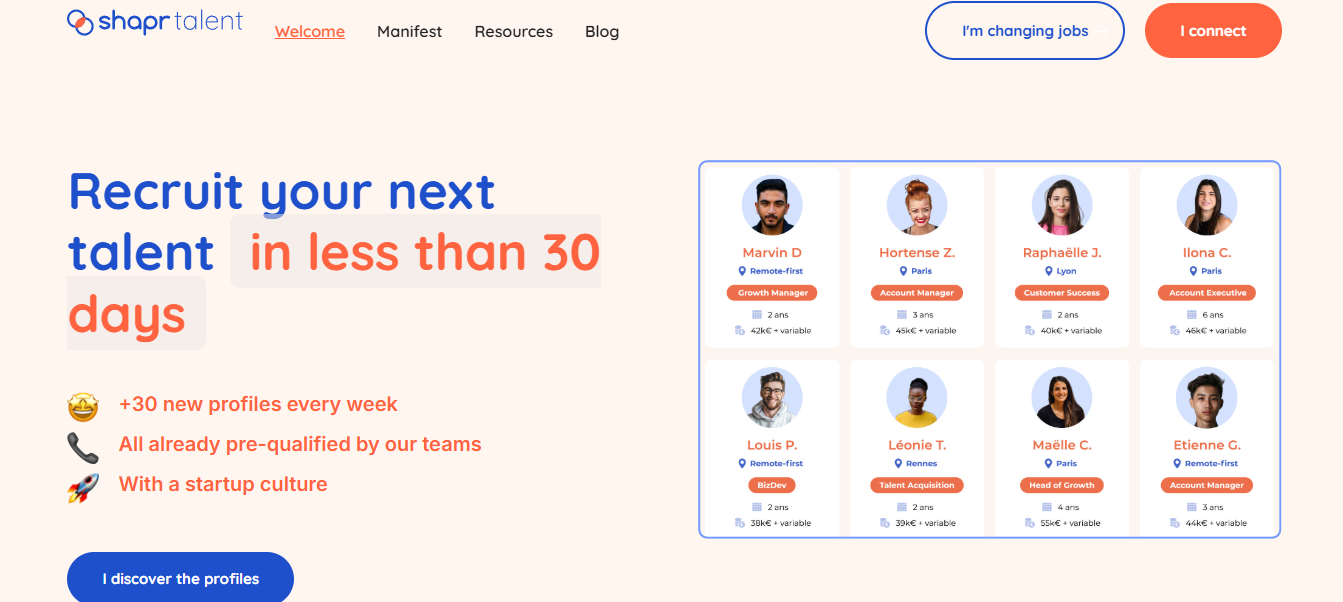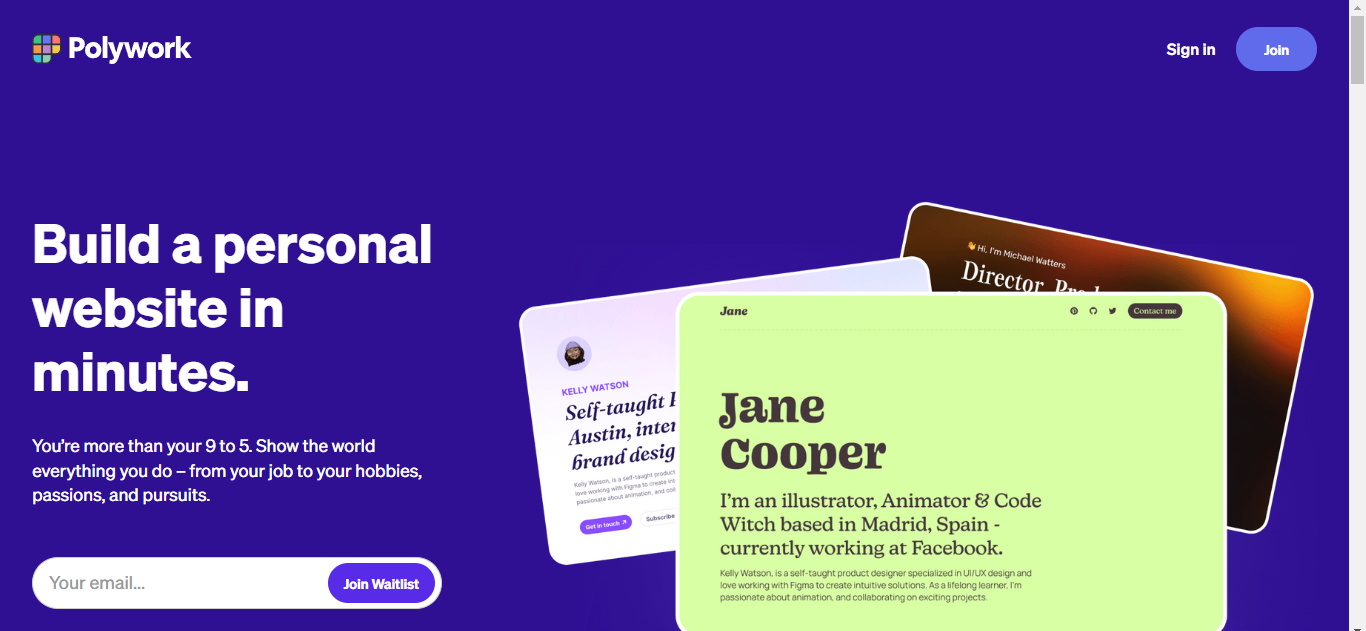LinkedIn has long been the cornerstone of professional networking and career advancement. It’s the platform millions rely on to connect, share their professional story, and discover job opportunities. But as the professional world evolves, so do the ways we connect. LinkedIn can sometimes feel overwhelming—flooded with generic posts, irrelevant connection requests, and algorithm-driven noise. More importantly, it may not always serve your unique career path or industry-specific needs, which is why exploring the best LinkedIn alternatives can open up new opportunities tailored to your goals.
This is where LinkedIn alternatives come into play. These platforms offer focused, personalized, and often niche environments tailored to different types of professionals and career goals. Whether you want to network more meaningfully, showcase a multifaceted skillset, or tap into specific industries or regional markets, exploring other options can be a game-changer.
Why Should You Consider LinkedIn Alternatives?
LinkedIn’s vast user base is both its greatest strength and biggest weakness. While it provides unparalleled reach, the sheer volume of users and content can make it difficult to stand out or find the right connections. Additionally, some professionals feel that LinkedIn encourages a certain type of networking regularly superficial or focused on quantity over quality.
Alternative platforms frequently prioritize meaningful interactions, niche communities, or unique ways of showcasing your professional identity. They help you:
-
Find like-minded professionals in focused settings: These platforms frequently curate connections based on shared goals, interests, or industries.
-
Showcase your skills and work more dynamically: Some alternatives allow you to highlight side projects, creative work, or multifaceted roles better than a traditional resume or LinkedIn profile.
-
Access job markets that LinkedIn doesn’t dominate: Regional platforms or startup-focused sites can give you exclusive access to opportunities outside LinkedIn’s ecosystem.
What Makes a Good LinkedIn Alternative?
When evaluating alternatives, consider platforms that offer:
-
Focused networking: Instead of mass connections, look for curated, relevant networking experiences.
-
Versatile profile options: Platforms that let you tell your career story beyond job titles and dates.
-
Job and project opportunities: The ability to discover or be discovered for roles that fit your niche or region.
-
Community engagement: Tools to collaborate, share insights, and build authentic relationships.
With these criteria in mind, here are five standout LinkedIn alternatives worth exploring.
7 Best LinkedIn Alternatives
1. Shapr

Networking can be exhausting. Endless scrolling, impersonal messages, and low response rates make it feel like a chore. Shapr’s mission is to fix this by turning networking into a simple, daily habit that feels personal and manageable.
Using an algorithm that matches you with professionals aligned to your interests, goals, and location, Shapr gives you a curated list of potential contacts each day. You swipe right to connect, and if there’s mutual interest, you can start a conversation. This design encourages genuine, intentional connections without the noise.
Best for: Professionals who want focused, meaningful networking without to overwhelm. Ideal for freelancers, job seekers, and local professionals.
Pros:
-
-
Personalized daily matches keep networking manageable
-
Mobile-first interface encourages regular engagement
-
Encourages genuine conversations over mass outreach
-
Cons:
-
-
Free plan limits the number of matches per day
-
Premium subscription needed for unlimited access and extra features
-
Pricing: Free basic version; premium plans start at approximately $15/month
Why choose Shapr? If you want to grow your network thoughtfully and efficiently, Shapr makes networking feel less like a task and more like a natural part of your day.
2. Polywork

Unlike traditional platforms focused on job titles and corporate roles, Polywork is built for modern professionals with diverse careers. Whether you’re a freelancer, side hustler, or someone juggling multiple projects, Polywork lets you highlight all your activities — collaborations, publications, side gigs, and hobbies in one dynamic profile.
It’s designed to break down the siloed way we think about careers and invite collaboration. You can invite others to work on projects, showcase achievements in real time, and present a nuanced picture of your professional identity.
Best for: Freelancers, creatives, and anyone whose career can’t be summed up by a simple job title.
Pros:
-
-
Allows multiple projects and roles on one profile
-
Encourages active collaboration and invitations
-
Completely free to use without paywalls
-
Cons:
-
-
Smaller and less mainstream than LinkedIn
-
Less suited for traditional job searches or corporate recruiters
-
Pricing: Free
Why choose Polywork? If you want a vibrant profile that tells your entire career story and helps you collaborate on new projects, Polywork is a fantastic choice.
3. AngelList
AngelList, rebranded as Wellfound, is the premier platform for startup jobs and investment opportunities. It directly connects jobseekers with startup founders and hiring managers, cutting out middlemen and recruitment agencies. It’s especially popular in the tech sector and remote work communities.
One of AngelList’s biggest draws is transparency — many job listings include detailed salary and equity information, empowering candidates to make informed decisions. If you want to work at an innovative startup or remote-first company, AngelList is the place to be.
Best for: Tech professionals, startup enthusiasts, and remote jobseekers looking for transparent job offers.
Pros:
-
-
Direct access to startup leadership and hiring managers
-
Transparent compensation and equity details
-
Extensive remote and flexible job listings
-
Cons:
-
-
Not ideal for traditional corporate roles or established companies
-
Limited networking and social features compared to LinkedIn
-
Pricing: Free for job seekers; companies pay to post jobs
Why choose AngelList? If you’re targeting fast-paced startups or remote roles where equity is part of the package, AngelList gives you insider access.
4. Xing
Xing is often called the “LinkedIn of Germany” and dominates the professional networking space in German-speaking countries like Germany, Austria, and Switzerland. If your career or business is focused on these regions, Xing offers local job boards, industry groups, and professional events designed to help you build relevant connections.
Xing’s strong regional focus makes it indispensable for those looking to tap into the DACH (Germany, Austria, Switzerland) markets with tailored content and networking features.
Best for: Professionals and businesses aiming to connect in German-speaking Europe.
Pros:
-
-
Region-specific job postings and professional events
-
Established network trusted by employers in DACH countries
-
Strong focus on privacy and professional etiquette
-
Cons:
-
-
Limited usefulness outside German-speaking countries
-
The interface feels a bit dated compared to newer platforms
-
Pricing: Free basic use; premium subscription costs around €8–10/month
Why choose Xing? When working or recruiting in the German-speaking region, Xing is often the most effective professional platform.
5. Behance
If you’re a creative professional — a designer, illustrator, photographer, or visual artist — Behance is your digital portfolio’s best friend. Owned by Adobe, it allows you to present your work beautifully, gain visibility, and connect with potential clients or recruiters.
Behance isn’t just about showing off your work; it’s an active community where creatives share feedback, collaborate, and discover freelance or full-time gigs. Plus, integration with Adobe Creative Cloud makes updating your portfolio effortless.
Best for: Creatives looking to build an online portfolio and network with industry peers and clients.
Pros:
-
-
Visually stunning portfolio presentation tools
-
Access to a vibrant, engaged creative community
-
Easy updates via Adobe Creative Cloud integration
-
Cons:
-
-
Networking features are limited outside creative fields
-
Not suited for traditional job searching or corporate networking
-
Pricing: Free; Adobe Creative Cloud subscription starts at $10/month for advanced tools
Why choose Behance? For creatives wanting to make their work the centerpiece of their professional presence, Behance is unmatched.
6. GitHub
For software developers, engineers, and tech enthusiasts, GitHub isn’t just a code repository—it’s a powerful platform to showcase your technical skills, contribute to open source projects, and build a professional reputation in the developer community. Unlike traditional professional networks, GitHub lets your work speak for itself. Recruiters and companies often scout talent based on contributions, project quality, and collaborative activity.
Best for: Developers and tech professionals looking to demonstrate coding skills and collaborate on projects.
Pros:
-
-
Public portfolio of real code and projects
-
Active community to engage with and learn from
-
Open-source contributions can boost visibility and credibility
-
Cons:
-
-
Limited for non-technical professionals
-
Not a traditional networking platform—less emphasis on resumes or profiles
-
Pricing: Free for public repositories; paid plans available for private repos starting at $4/month
Why choose GitHub? If you want to grow your tech career by showing actual work and collaborating in a vibrant developer community, GitHub is essential.
7. Reddit
Reddit might not be the first platform you think of for professional networking, but its vast range of specialized communities (subreddits) makes it an underrated resource for career growth. You can join groups focused on specific industries, roles, skills, or job hunting advice. The open discussions, AMAs (Ask Me Anything), and networking threads provide a chance to learn, share experiences, and even discover job leads.
Best for: Professionals who want to engage in authentic conversations, seek advice, or find niche job opportunities.
Pros:
-
-
Access to highly specialized communities and real-time discussions
-
Opportunity to ask questions and get candid career advice
-
Free to use and anonymous if preferred
-
Cons:
-
-
Not a traditional professional networking site
-
Quality of advice and interaction can vary widely
-
Pricing: Free
Why choose Reddit? If you want candid, grassroots-level engagement with peers and access to niche professional communities, Reddit offers a unique space to grow.
Choosing the Best Platform for Your Career
No single platform fits everyone. LinkedIn alternatives like Shapr, Polywork, AngelList, Xing, and Behance each serve different purposes and cater to distinct professional needs. Whether you want focused networking, a dynamic career story, access to startups, regional connections, or a creative showcase, one or more of these platforms can complement or even surpass LinkedIn for your goals.
The best approach is to experiment and find the platforms that resonate most with your industry, style, and objectives. By diversifying your online presence, you increase your chances of meaningful connections, exciting opportunities, and ultimately, career growth.
Interesting Reads:
8 Best Thinkific LMS Alternatives that Deliver Flexibility and Value
Best Teachable LMS Alternatives to Power up your Online Platform
7 Best Moodle Alternative Platforms for Better LMS Experience


